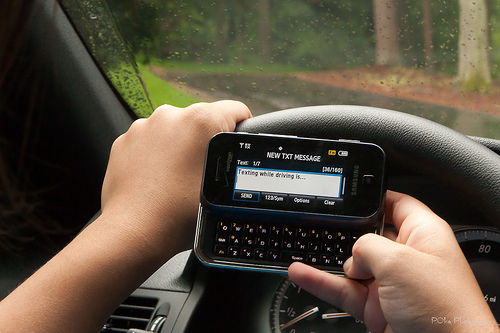 We’ve all heard it: teens are the most reckless drivers. While this may not be true for all teenagers, it is true that their lack of experience and propensity to be distracted certainly doesn’t work in their favor.
We’ve all heard it: teens are the most reckless drivers. While this may not be true for all teenagers, it is true that their lack of experience and propensity to be distracted certainly doesn’t work in their favor.
On today’s roads, however, teen drivers (and all inexperienced vehicle operators) have become even more dangerous. According to a recent post from The New York Times, an inexperienced driver who reaches for a cellphone increases the risk of a crash by more than 700 percent!
A recent study used accelerometers, cameras, GPS, and other sensors to examine the driving habits of 42 newly licensed 16- and 17-year-old drivers, as well as, 167 adults with more experience.
For teenagers, eating while driving nearly tripled the risk of a crash. Texting or looking at an object on the side of the road quadrupled that risk. By far the worst action a teenager could engage in is dialing a phone as dialing a number while driving was eight times more likely to result in a motor vehicle crash. Even for experienced adult drivers, dialing a phone number significantly increased the risk of an accident.
The study also found that most drivers spend a shocking 10 percent of their time behind the wheel looking at something other than the road. This is true regardless of age or experience level.
As an experienced auto accident attorney in Colorado Springs, Colorado, I’ve seen the danger of inexperience and distracted driving on our roadways. When these two forces come together, however, the danger, is multiplied, making Colorado’s roads less safe for all other drivers.
If you have a teenager that is about to get his or her driver’s license, or recently got behind the wheel for the first time, be sure to talk about the dangers of distracted driving. No text or phone call is worth the risk, as it may become the last message he or she ever sends.
If you have questions about distracted driving or have been injured in an accident caused by a distracted driver, contact an experienced personal injury attorney right away.
Photo Credit: Flickr user VCU CNS via Creative Commons

